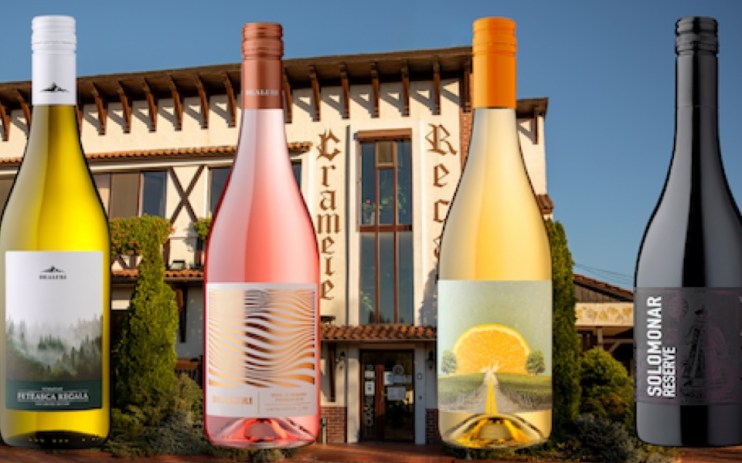Drinking around the world: Romanian wines to die for

My introduction to Romanian wine was inauspicious. It came in one of Count Dracula’s tourist castle hotels in Transylvania. We sat around a coffin-shaped table as a black-suited waiter approached and smiled, revealing not particularly threatening canines. As he brandished the wine list he said, “May I have the pleasure of providing sir with a memorable Full Moon?”
The resulting Romanian Riesling was surprisingly good, setting the tone for a holiday where the wine on offer was markedly better than the cheap plonk being served back home. Thankfully, since then, the reputation of Romanian wine abroad has undergone a transformation, now representing a hip new destination on the wine lists of many top restaurants, with its excellent winemaking climate and rugged terrain producing some exceptional and unusual bottles that chime with more adventurous gourmands.
Romania is home to a diverse range of grape varieties, including Fetească Regală, Fetească Albă, Băbească Neagră , Novac, Francusa, Busuioaca de Bohotin, Grasa de Cotnari and Cadarca. Viticulture in the country goes back 6,000 years, long before the phylloxera blight of the 1880s, with each region having its own grape variety. Romania now has over 187,000 hectares of vine plantations producing worthy, food-friendly wine. It is now the fifth largest producer of wine in Europe, ahead of Austria and Greece, with Germany and the Netherlands its biggest export markets.
Transylvania is the highest altitude wine region in the country – German settlers introduced winemaking to the region in the twelfth century – producing predominantly white wines, while the south is home to the country’s finest reds.
Romania’s largest producer of natural wines and biggest exporter to the UK is Cramele Recas, a firm run by Bristolian and former Heineken beer salesman Philip Cox, who also worked on Black Tower. Along with his Romanian wife Elvira and winemakers Hartley Smithers and Nora Iriate, he is hoping to see continued growth in the appreciation of Romanian wines, despite the trials and tribulations of Brexit.
“When we started out, Romania had a terrible image and this impacted on lots of things, the wine industry included. That has changed but we all have to continue trying to raise the bar and show that we really can be world class,” says Cox.
Founded in 1998, Cramele Recas has been vegan since 2018. Aldi stocks its Rose and Fetthe Feteasca Regala, priced at an absurdly low at £4.99, while M&S sells the drier Feteasca for between £7.50-8.50. Majestic offers the excellent red Solomonar Reserve at £8.99 as well as an Orange wine and Waitrose stocks Sorcova Pinot Grigio and Pinot Noir. Spar, meanwhile, offers Wildflower Pinot Grigio and Sauvignan Blanc.
Another Brit involved in Romanian wine’s evolution is Stephen Donnelly, formerly of Kent’s Lamberhurst Vineyards. His Budureasca Noble Five is a blend of full-bodied reds producing an intense, dark, ruby-coloured wine with flavours of blackberry, plum and cherry.
Other notable winemakers operating in the country include Gabriel Lacureanu, who produces the country’s only kosher wine, and Aurelia Vișinescu of Domeniile Săhăteni in Dealu Mare, who produces a wonderful dry Muscat.
So next time you’re in the supermarket, don’t gloss over the Romanian wines – blood red and eminently sippable, some of them are to die for.